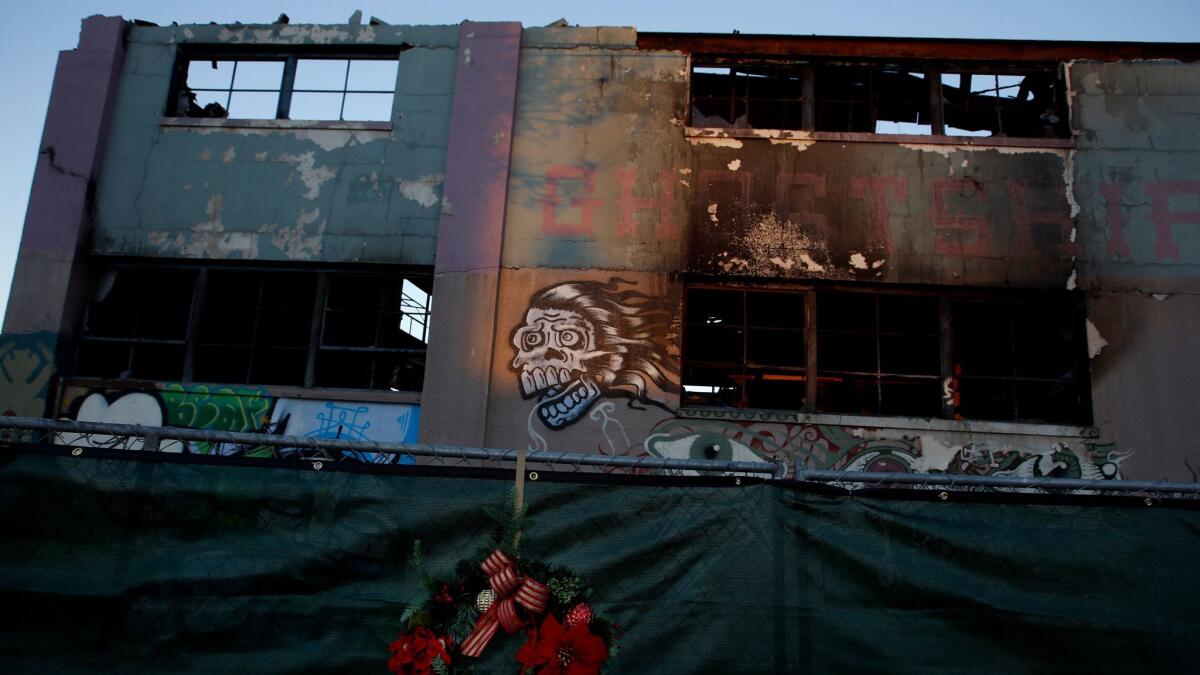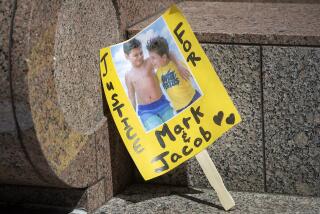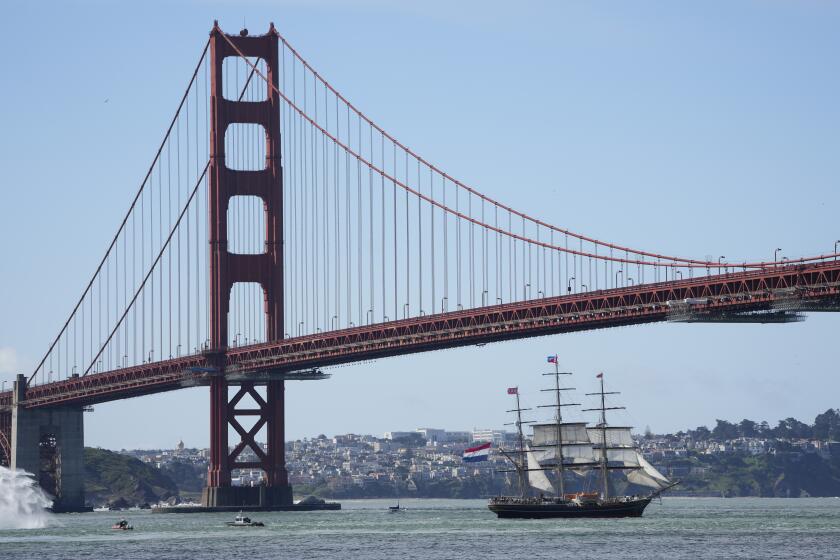Jury begins deliberating at Ghost Ship warehouse fire trial

A jury began deliberating Wednesday the fate of two men charged in a deadly fire at a Bay Area warehouse two years ago.
Derick Almena and Max Harris were charged with involuntary manslaughter in the deaths of 36 people at a December 2016 party at the so-called Ghost Ship warehouse in Oakland.
Alameda County prosecutors say the men acted with criminal negligence when they illegally converted the industrial building into a residence for artists and held unpermitted events there.
During closing arguments after a four-month trial, prosecutors told jurors that 35 of the victims died on the upper level of the warehouse because they received no warning and had little chance to escape down a narrow, ramshackle staircase. Deputy Dist. Atty. Autrey James said Almena failed to install smoke alarms, sprinklers and other safety devices, and ignored repeated requests to obtain proper permits because he wanted to avoid inspections.
The prosecutor said Harris was “no innocent bystander” because he acted like a manager by collecting rent and coordinating events at the warehouse.
The defense countered that the men were being used as scapegoats and said city workers share the blame for not raising concerns about fire hazards.
Almena’s attorney rejected prosecutors’ characterization that the warehouse was a “death trap” and said he wouldn’t have risked the lives of his three children by having them live inside the warehouse.
Almena and Harris have also been named in lawsuits from victims’ families saying that Oakland’s fire and building departments failed to inspect the warehouse annually as required. The lawsuits say inspectors would have discovered the illegal conversions.
The owners of the building were also named in the lawsuit and have not spoken about the fire.
Almena and Harris were set to be sentenced to nine and six years in prison, respectively, after pleading no contest to manslaughter last year. But a judge threw out their pleas after many of the victims’ families objected, saying their proposed sentences were too lenient.
More to Read
Start your day right
Sign up for Essential California for news, features and recommendations from the L.A. Times and beyond in your inbox six days a week.
You may occasionally receive promotional content from the Los Angeles Times.






